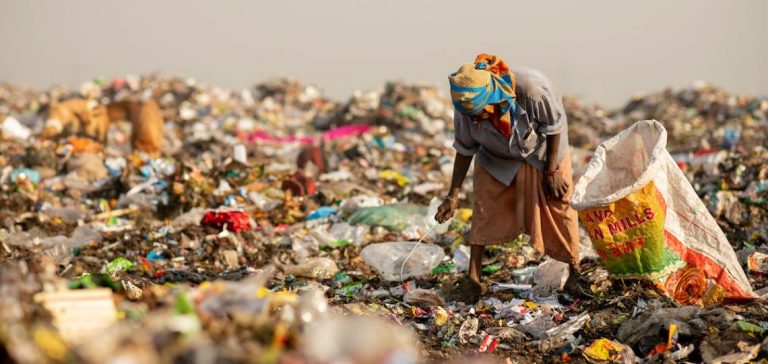India, as the world’s most populous country, generates approximately 65 million tons of waste annually. However, only 20% of this waste is efficiently treated. This inability to handle massive volumes of waste, whether plastic or organic, poses a significant challenge for resource managers and industry players. Overburdened Indian cities struggle to establish adequate infrastructure to handle these growing quantities. The lack of public investment in treatment infrastructure exacerbates this situation, leaving NGOs and the private sector to shoulder a significant part of this burden.
Local NGOs play a crucial role in attempting to fill the gaps left by public services. Among them, the *Society for Child Development* launched the “Avacayam” program, which stands out for its model of integrating people with disabilities into the waste management process. Rather than focusing solely on collection, this program transforms collected materials into value-added products, such as incense sticks or decorative items, thus contributing to a form of economic valorization.
Waste Valorization: An Innovative but Limited Approach
The waste valorization approach in India remains modest in terms of overall impact. The country continues to be one of the main contributors to global plastic pollution, according to a study published in *Nature*. Local initiatives have yet to compensate for systemic failures in resource management and collection. This situation highlights the extent of the work still needed in the waste management sector, particularly in urban areas.
In addition to collection challenges, NGOs like the *Society for Child Development* face scaling issues. While these programs provide significant support to local communities, their treatment capacity remains limited by financial and logistical constraints. Involving people with disabilities adds a social aspect to these initiatives but contributes only marginally to solving the broader waste management problem in India.
Lack of Institutional Support and Regulatory Framework
The lack of government support remains a major obstacle. Unlike other sectors of energy and environment, waste treatment does not benefit from significant tax incentives or clear policy support. The absence of uniform regulatory standards at the national level makes it difficult to harmonize practices and hinders the adoption of more advanced technologies.
Additionally, the waste management sector in India is still largely informal. According to the Institute of Energy and Resources, the majority of waste collected passes through unregulated channels, complicating traceability and processing. This situation poses safety risks for workers and limits opportunities for investment in sustainable solutions.
Limited Prospects for Large-Scale Recycling
The growth prospects for the recycling sector in India largely depend on the structuring of this market and the implementation of new regulations. Currently, most initiatives come from NGOs or small local businesses struggling to attract the necessary funding for large-scale development. The creation of public-private partnerships could provide a solution but requires clear political will and appropriate financial incentives.
Efforts to transform waste into reusable products, while commendable, have so far only a symbolic impact. The total volume of recycled waste remains low compared to the quantities generated, and the absence of a coherent regulatory framework limits the possibility of creating a profitable recycling market.






















